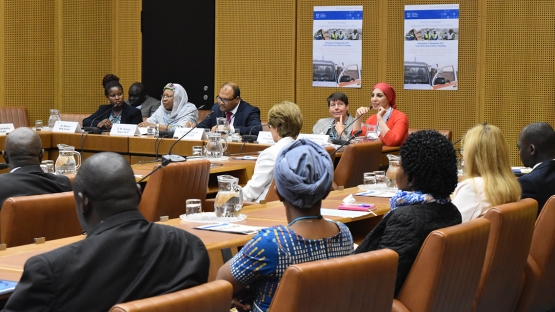Increasing the number of women pursuing careers in nuclear science and technology in Africa and enhancing the involvement of women scientists in the IAEA’s Technical Cooperation programme were the key topics under the spotlight at a panel discussion held yesterday alongside the IAEA General Conference in Vienna.
“Increased female participation has long been a goal of the IAEA Technical Cooperation programme,” said Dazhu Yang, IAEA Deputy Director General and Head of the Department of Technical Cooperation, which organized the event ‘Women in Nuclear: Leadership for Technical Cooperation Programme’. “We encourage Member States to nominate qualified female candidates as national partners for the IAEA and for fellowships and training courses supported by the IAEA.”




